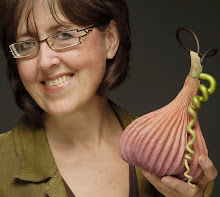
Having become a huge fan of the nonfiction writer Malcolm Gladwell after reading OUTLIERS: THE STORY OF SUCCESS, I began reading WHAT THE DOG SAW while visiting my newly married daughter and son-in-law in Minneapolis. Minneapolis, by the way, is a wonderfully artistic and cultural city that is also a very forward-moving, bike-friendly, diverse place with LOTS of incredible restaurants. And in case you hate winters, the whole downtown has over-the-street enclosed walkways -- two to every block as well as a nice light rail system. My daughter works in the gift shop of the Walker Museum of Contemporary Art so we had a very in-depth tour. I came away tremendously inspired.
But, I digress - back to WHAT THE DOG SAW. In the chapter entitled, "Late Bloomers: Why Do We Equate Genius with Precocity?", Gladwell bases his discussion on a study by David Galenson ("Old Masters and Young Geniuses: The Two Life Cycles of Artistic Creativity"). He describes prodigies like Picasso as rarely engaging in open-ended exploration, tending to be conceptual in the sense that they start with a clear idea of where they want to go and then they execute it. Late Bloomers, on the other hand, are experimental, searching their whole lives, wanting to hone their craft, and are often dissatisfied with their work. Late Bloomers do not necessarily start late in life and often do as much artistic endeavor in their youth as prodigies do, but their approach is different. Gladwell compares Picasso to Cezanne who even though was an artist all his life, did not have a major exhibition until the age of 56.
While reading this whole article, I kept thinking, "That's like me....that's like me....that's like me....I'm a late bloomer". Even my previous blog in which I describe my struggles as a 59-year-old artist fits the description. I've endeavored to hone my craft my whole life, still experiment with techniques, and am searching about what I want to say now. One more thing that Late Bloomers have in common is a "patron". By that he means, someone who is supportive, both financially and emotionally to the artist, someone who believes in them.
I can say here that I would not be where I am today without the support of my husband, David. Before we were married, he bought me a potter's wheel because I had taken a class and became enchanted with clay. Then he bought me a used electric kiln after we got married. Even though I have a degree in mathematics, he never told me I should be out working in a "real" job and has always told me how proud of me he is. I can also mention my mother who always said while I was getting my degree in math, "You should be taking art." I got an MFA when I was 29, indicating eventually I realized she was right.
So, I'll bet there are a lot of you who are also Late Bloomers. Just knowing there is a description of an "Old Master" that sounds like me is exciting. Struggle is all part of the process. But the most encouraging of all is ---- THE BEST IS YET TO COME.






